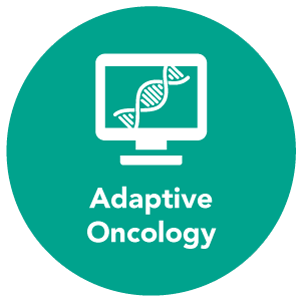Guided by blood samples, collaborative research team shows that patients’ tumour genomic and immune landscape predict response to a common immunotherapy
A Phase II clinical trial has shown that regular monitoring of circulating tumour DNA (ctDNA) in patients can be used to predict and assess the efficacy of the immunotherapy pembrolizumab. Building on that previous finding, a new study of the same patients’ tumours, co-led by Drs. Trevor Pugh and Lillian Siu, and recently published in Nature Communications, produced clinically significant findings that have bolstered understanding of how genomic and immune characteristics shape response to this therapy. The study, part of a clinical trial called INSPIRE at the Princess Margaret Cancer Centre (PM), was the first to test pembrolizumab across a range of metastatic cancers such as head and neck, breast and ovarian cancers and rare solid tumours.
“From previous research we knew that the level of ctDNA in the bloodstream is very strongly associated with response to this therapy – increases in ctDNA after treatment are predictive of poor outcomes,” explains Pugh, Director of Genomics and a Senior Investigator at OICR and a Senior Scientist at PM. “By looking at ctDNA and response to this immunotherapy across many different cancer types, we were able to get a better understanding of the underlying mechanisms – both immune and genomic – that determine how well this therapy works for an individual patient.”
The research team’s pan-cancer approach (studying across cancer types) allowed them to discover that in non-responding patients, many different molecular mechanisms were at play. “It was quite striking to see that many of these tumours had their own unique way of evading immune response from the therapy,” says Pugh. “It shows the need to break out of the cancer type-specific mold and expand our investigations to include the immune cells that infiltrate tumours and play a role in patient outcomes.”
These important findings were the result of a successful multi-disciplinary and inter-institutional collaboration that brought together researchers and clinicians from several organizations and specialties. The OICR-PM Joint Genomics Program and the PM Tumour Immune Profiling and Cancer Genomics Programs, with support from industry partners Natera and Merck, worked together to discover the new biomarkers.
“This study is a perfect example of what you can accomplish by taking a team approach to science. We are indebted to the study team, our patients and their families for their support.” says Siu, a Senior Scientist and medical oncologist at PM and the BMO Chair in Precision Cancer Genomics. “Through INSPIRE, not only did we discover new biomarkers, we also laid the groundwork for new investigator-initiated trials so that we can continue to find even more ways predict response to immunotherapy.”
It is anticipated that the knowledge generated from this study will be incorporated into clinical genomics reports generated by the OICR-PM Joint Genomics Program by screening patients for biomarkers of response to pembrolizumab and other immunotherapies so that the patients most likely to benefit enroll in these trials.
“As someone who leads a clinical lab, this really excites me,” says Pugh. “By building this new knowledge into the workflow of our CAP-accredited lab we can provide patients with another potential treatment option and help enable this type of therapy for more types of cancer, as it has only been commonly used in lung cancer and melanoma, with notable success.”
The study found that there are some shared ‘immunogenomic’ traits that predict response to pembrolizumab. For example, women with breast and ovarian cancers generally had a poor response to the therapy, but those that did respond shared molecular characteristics with melanoma patients who had similar outcomes.
“The work of our multidisciplinary team is allowing us to explore new uses of immunotherapies and will help us deliver even more useful information to patients and their doctors,” says Pugh. “We are excited to continue our work on this less-invasive method of managing patient care and are planning more studies to enable increased use of ctDNA and genome sequencing in the clinic.”
Read more: Princess Margaret Cancer Centre researchers expand understanding of immunotherapy benefits (UHN newsroom)
This work was supported by the Princess Margaret Cancer Foundation, Ontario Institute for Cancer Research, Terry Fox Research Institute, Gattuso-Slaight Personalized Cancer Fund, BMO Chair in Precision Cancer Genomics, Canada Research Chair in Translational Genomics, Canada Foundation for Innovation, Ontario Ministry of Research and Innovation, and Merck for the study drug.




